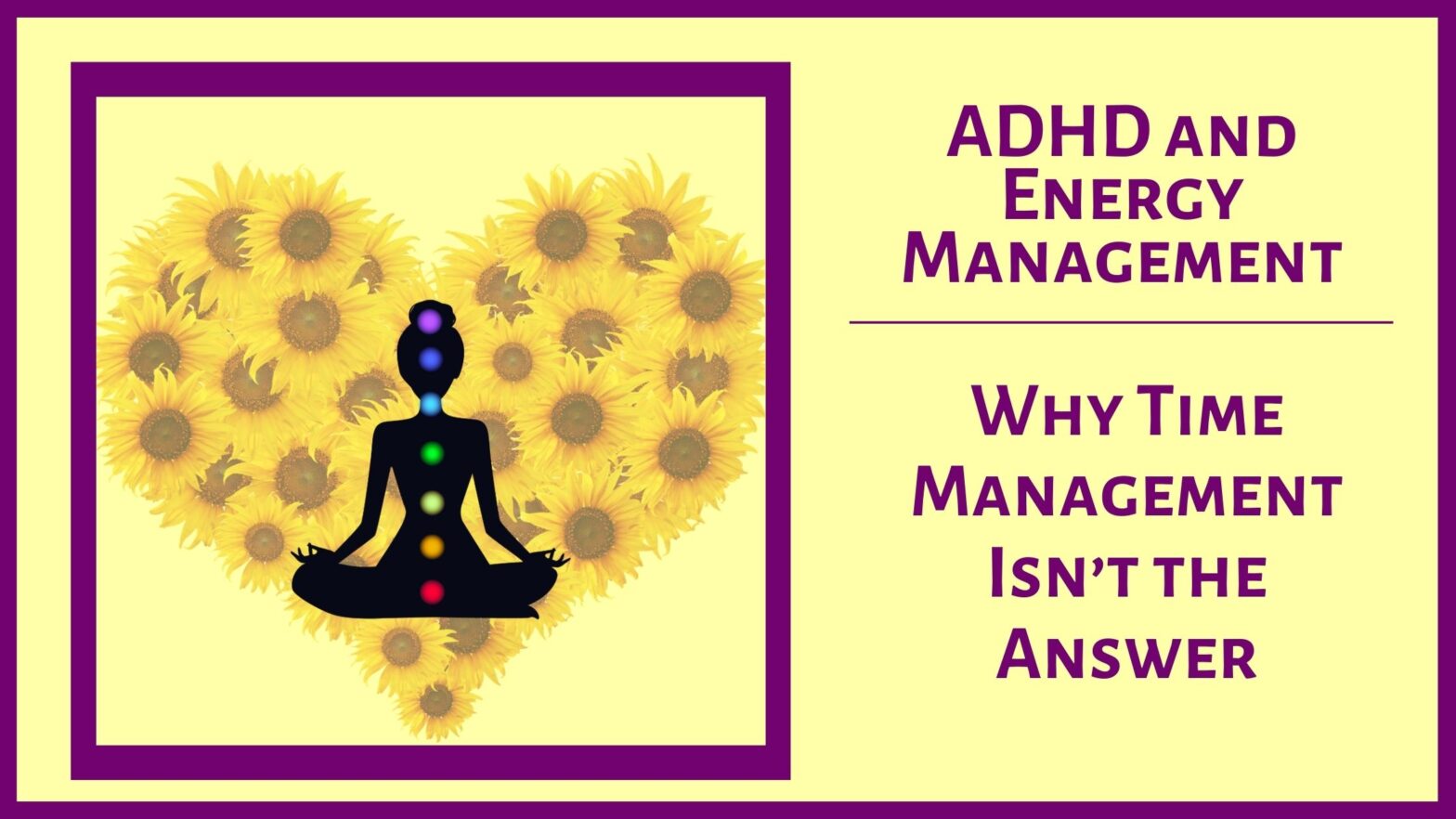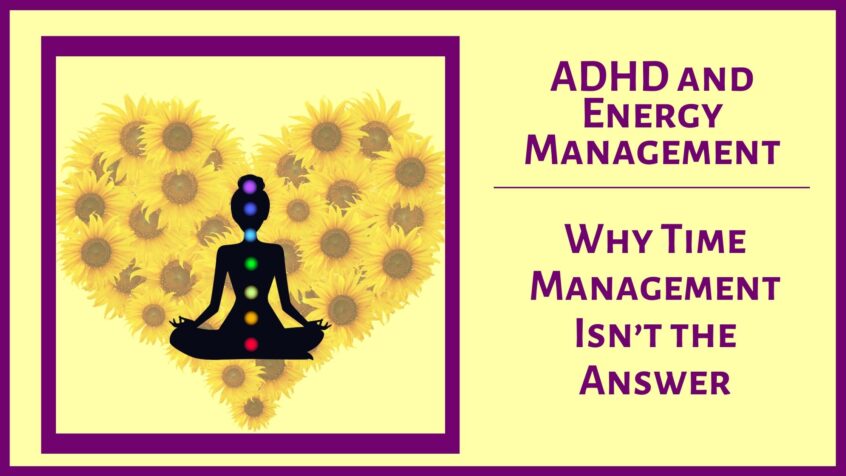ADHD And Energy Management – Why Time Management Isn’t The Answer
Everyone tells us we’ll be more productive if we just time block. Or manage our time in some specific way. But for many of us with ADHD, the struggle isn’t just about managing time—it’s about managing energy.
Traditional time management strategies often miss the mark because they don’t account for the fluctuating energy levels that come with ADHD. Focusing only on time can feel like slapping a bandaid on situation – a temporary fix.
Let’s chat about why energy management—rather than time management—is the real key to productivity and well-being for those with ADHD.

The ADHD Brain and Energy Dynamics
The ADHD brain works differently then neurotypical brains, especially when it comes to energy and motivation.
Because of differences in brain structure and dopamine regulation, people with ADHD experience energy fluctuations that can be unpredictable. You might feel energized during stimulating tasks but drained by more mundane ones, making it harder to stay focused and productive.
Additionally, ADHD impacts executive functions like planning and prioritizing, leading to mental fatigue and burnout. This is why traditional time management strategies, which assume a steady energy flow, often fall short. And then we feel like we personally failed. (We didn’t.)
By understanding your unique energy patterns, you can work with them, instead of fighting against them, to create more sustainable productivity.
SOME of the Pitfalls of Traditional Time Management Approaches
Time management strategies like rigid schedules and endless to-do lists often don’t work for people with ADHD. They sure don’t work for me!
Why? Because they don’t take into account the fact that ADHD brains don’t operate in a steady, predictable rhythm. ADHDers can struggle with focus, task initiation, and sustaining attention, especially when tasks are boring or overwhelming.
Time management assumes a level of consistency that simply isn’t there for ADHD brains, which is why it can leave you feeling defeated instead of productive.
When you try to force yourself into a one-size-fits-all time management plan, you’re more likely to feel frustrated, stuck, or burnt out. You might feel shame or guilt for your perceved failure.
Time blocks and deadlines often add more pressure than progress, making it harder to follow through.


Understanding Energy Peaks and Valleys
Think of your energy as a series of peaks and valleys, not a straight line.
ADHD brains don’t have a constant energy level throughout the day—there are times when you feel ready to take on the world and times when even getting out of bed feels like a marathon.
Understanding these energy patterns is key to making the most of your day.
By recognizing your natural energy highs and lows, you can plan your tasks around when you’re most alert and focused.
For example, I schedule my clients during times I know my energy isn’t low, I schedule myself to do high focus tasks in the morning when I work best. It’s about finding out what works for you!
Working with your energy allows you to work with your body’s natural rhythm, instead of fighting against it with rigid time blocks.
Energy Managment Tips
-
Identify Your Energy Peaks and Valleys: Pay Attention to when you feel most alert and when your energy dips through the day.
-
Prioritize Tasks Based on Energy, Not Time: Instead of trying to fit everything into a set schedule, prioritize tasks based on your energy levels.
-
Take Regular Breaks: Schedule short, frequent breaks throughout your day to recharge your energy.
-
Create an Energizing Environment: Set up your workspace to help you feel energized and focused.
-
Practice Self-Care During Low-Energy Times: Use your low-energy moments to care for yourself.
-
Plan Tasks with Flexibility: Instead of relying on strict time blocks, allow for some flexibility in your schedule. When you hit a low-energy point, be ready to switch gears to a less demanding task instead of forcing through a challenging one.


When it comes to ADHD, managing energy is far more effective than obsessing over time management.
By understanding and working with your natural energy patterns, you can create a routine that feels sustainable and productive.
Time management may work for some, but energy management is the key to thriving with ADHD.
Ready to explore more ADHD-friendly strategies?
Schedule a free, no obligation Discovery Call with ADHD Coach Kat and lets get started.
Questions? Feel free to send me an email at Kat@AllBelong.com and let’s chat!

 Don’t Delay Joy
Don’t Delay Joy
Kat Sweeney, MCLC


